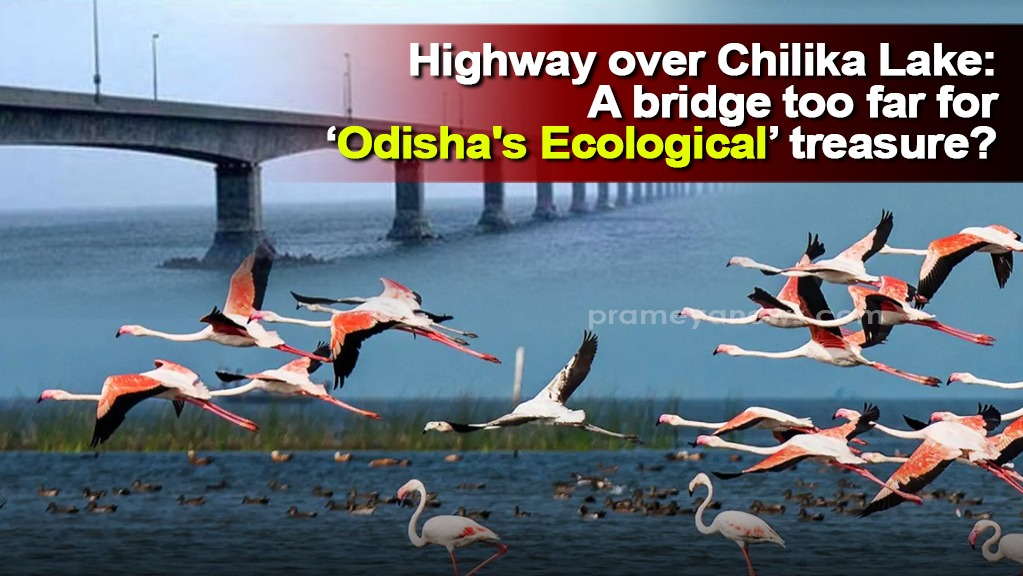

A storm of controversy is brewing over a proposed highway project that threatens to cast a shadow over Chilika Lake, Asia's largest brackish water lagoon and a biodiversity hotspot in Odisha, India. The project, championed by the Ministry of Road Transport and Highways, has ignited fierce opposition from environmentalists, conservationists, and local communities who fear irreversible damage to the lake's delicate ecosystem. This clash between infrastructure development and ecological preservation raises critical questions about sustainable development and the delicate balance between human needs and environmental protection.
The proposed project involves the construction of a two-lane national highway over Chilika Lake, connecting Satpada and Krushnaprasad blocks in Puri district. The 7.8 km stretch would include two bridges spanning 3.55 km over the lagoon, linking the Gopalpur-Satpada highway (NH-516A). While proponents argue that the project will enhance connectivity and boost economic activity, environmentalists warn of severe consequences:
This is not the first time a project threatening Chilika Lake has faced resistance. In 2021, a proposal for a four-km-long scaffold over the lake was rejected by the Expert Appraisal Committee due to strong objections from environmentalists. The National Green Tribunal (NGT) has also expressed concerns about the project's potential impact on the lake's ecosystem.
The controversy surrounding the Chilika Lake highway project highlights the critical need for sustainable development practices that prioritize environmental protection alongside economic progress. Balancing infrastructure development with ecological conservation is crucial to ensure the long-term health of fragile ecosystems and the well-being of communities that depend on them.
The proposed highway over Chilika Lake represents a critical juncture in Odisha's development trajectory. It forces us to confront the complex choices involved in balancing economic growth with environmental stewardship. The voices of environmentalists, local communities, and concerned citizens must be heard and considered in the decision-making process. The future of Chilika Lake, a treasure trove of biodiversity and a lifeline for countless species, hangs in the balance. It is imperative that we prioritise sustainable development solutions that protect this invaluable ecosystem for generations to come.